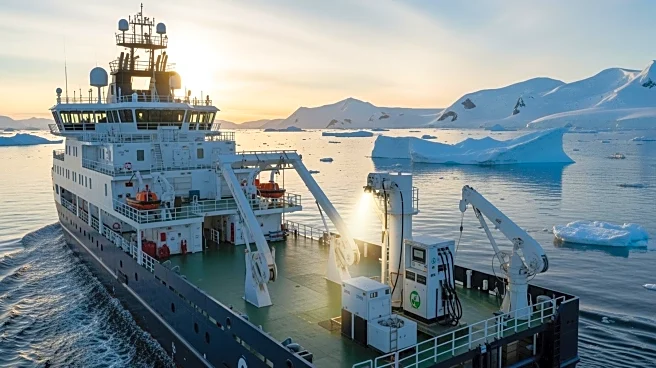What's Happening?
The British Antarctic Survey (BAS) has launched its flagship polar research vessel, the RRS Sir David Attenborough, on a new Antarctic expedition using hydrotreated vegetable oil (HVO) as fuel. This initiative
is part of BAS's efforts to decarbonize marine operations, with the vessel embarking on a five-week voyage to Antarctica. The use of HVO, a renewable diesel, is expected to significantly reduce carbon emissions compared to conventional diesel fuel. The expedition will support over 60 science projects focused on climate, ocean, and ecological research.
Why It's Important?
The use of biofuel in the RRS Sir David Attenborough represents a significant step towards reducing the carbon footprint of marine research operations. As shipping activities account for a substantial portion of BAS's emissions, the transition to HVO could serve as a model for other organizations aiming to achieve net-zero emissions. The research conducted during the expedition will provide critical insights into climate change impacts in the Antarctic region, contributing to global understanding and policy-making efforts to address environmental challenges.
What's Next?
The research vessel will continue its journey to Antarctica, where scientists will conduct extensive research over the next seven months. The findings from these projects are expected to inform future strategies for climate resilience and environmental conservation. BAS aims to reach net-zero emissions by 2040, and the success of this biofuel initiative could influence broader adoption of sustainable practices in the maritime industry.









